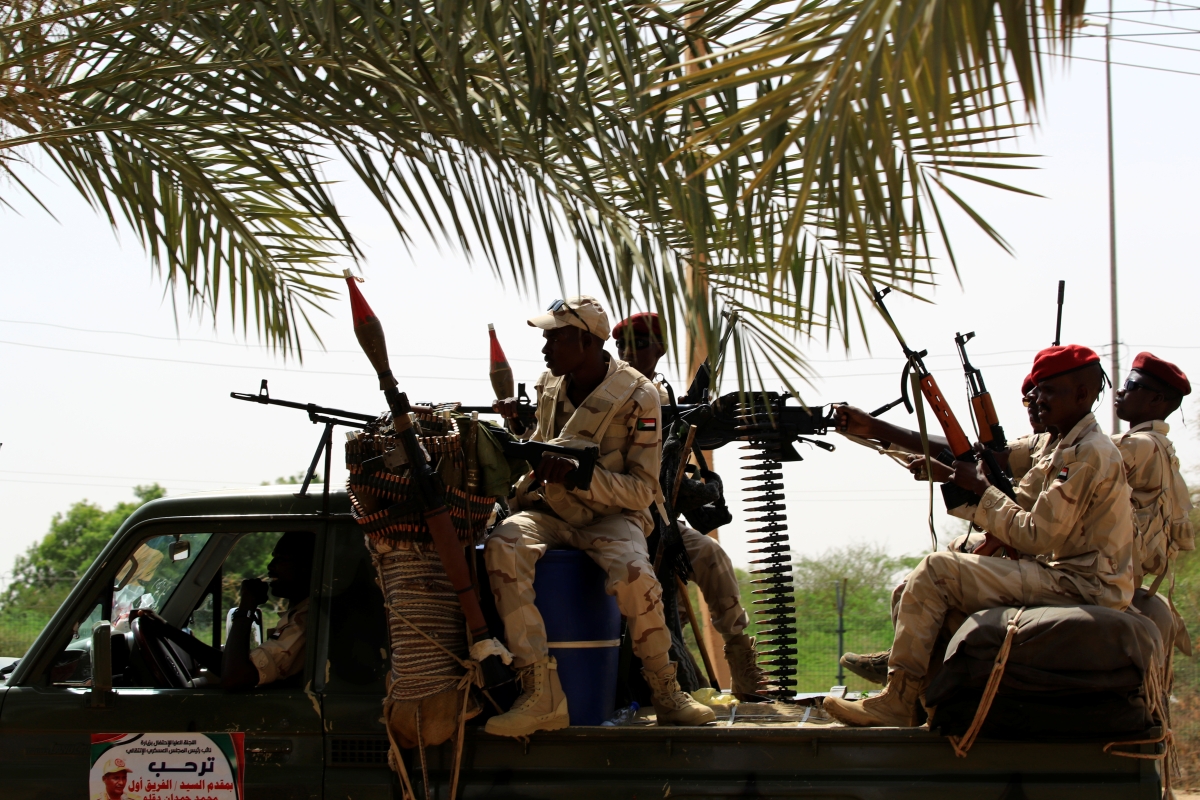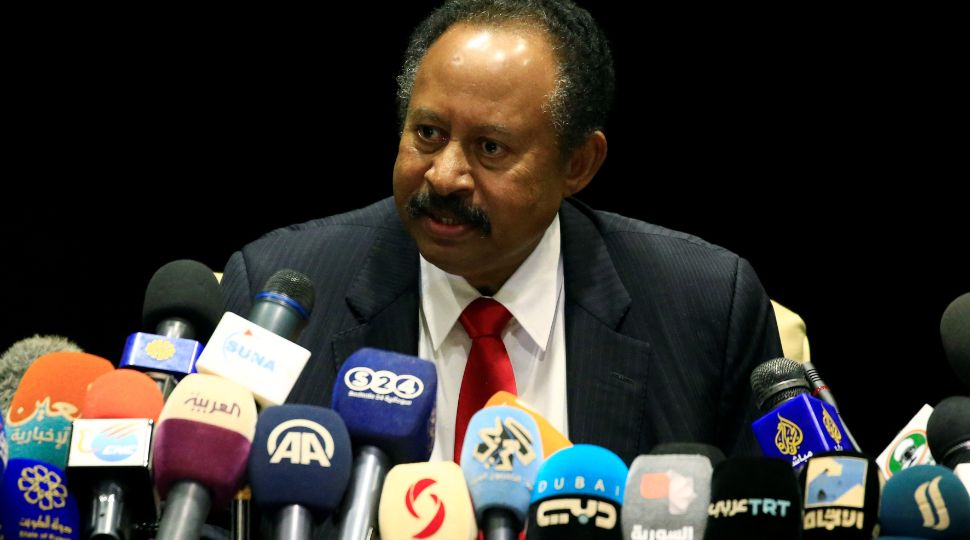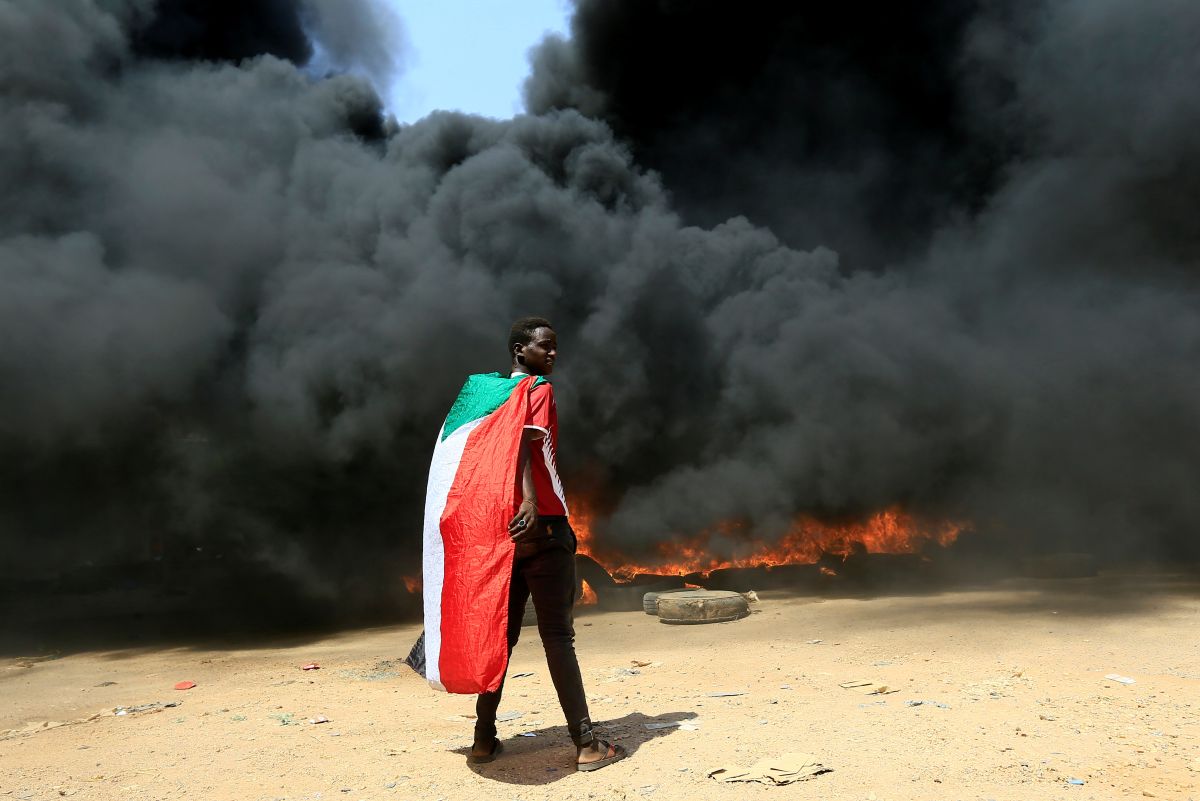Ending the War in Sudan will be Difficult
Fighting in Sudan between the regular army and the paramilitary Rapid Support Forces (RSF) has been ongoing since 15 April. The clashes are mainly taking place in the capital, Khartoum, and in the Darfur region, causing the destruction of infrastructure, a humanitarian disaster, and the displacement of the population. Although neither side has achieved military superiority or the support of the population, they are determined to continue fighting until the opponent is eliminated, which makes efforts to achieve a permanent ceasefire difficult. In the longer term, international support for a political solution to the crisis should aim to restore civilian control of the state.
 UMIT BEKTAS / Reuters / Forum
UMIT BEKTAS / Reuters / Forum
The immediate cause of the clashes was the resistance of the influential leader of the paramilitary militias (RSF), Gen. Mohamed Hamdan Dagalo (“Hemeti”), to the government incorporating his around 100,000 fighters into the regular army, led by Gen. Abdel-Fatah al-Burhan. It was part of a framework political agreement initiated by the U.S. and Saudi Arabia on 5 December last year. The aim was to recreate a legal, civilian government one year after the previous one was overthrown by Dagalo and Burhan, who were collaborating at the time. Despite clear signals of imminent fighting—the RSF increased its forces in Khartoum to around 70,000—unlike in the past, no coordinated diplomatic action for de-escalation was undertaken in a timely manner.
It is possible, however, that the clashes between the RSF and the army could not have been prevented. The existence of parallel power centres in the security structure was an untenable anomaly—the RSF was effectively a private, uncontrollable army, and its leader had ambitions to rule Sudan and the region. Since at least 2019, the RSF and the army have been on a trajectory for confrontation, distrust has been growing between their commanders, and both forces have been intensively recruiting new fighters in recent months.
The Course of the Conflict
On 15 April this year, shortly after talks on the conditions for reforming the security sector broke down, Gen. Dagalo attempted to take over military bases throughout the country and seize the most important public facilities in the capital. He hoped for a quick victory thanks to the advantage in combat experience and the mobility of his forces. The RSF occupied most of the capital agglomeration (Khartoum-Omdurman-Bahri) with a population of 7-10 million, including the international airport, the presidential palace, the refinery, as well as most of the Darfur region, where it originates. In response, the army used planes to bomb RSF positions and headquarters in the centre of the capital. The inhabitants of a large part of the city lost access to water and electricity, which led to a humanitarian crisis. In Khartoum, RSF forces dispersed into residential quarters, seizing private homes, the offices of NGOs and UN agencies, and looting property, food warehouses, shops, banks, and embassies. Most of the hospitals were destroyed and some were occupied by the RSF as barracks after throwing out staff and patients. The first 40 days of fighting in Sudan resulted in at least 1,000 casualties, about 1.3 million people fleeing their homes, and extensive damage to infrastructure. Most state institutions ceased to operate and their functions were taken over at the local level by so-called resistance committees—a self-organisation movement in the districts, which, since the overthrow of the dictatorship of Omar al-Bashir in 2019, has demanded the withdrawal of the army and militias from politics and the economy, growing into a significant political force. They organised emergency services, including medical assistance, informing about the availability of food and medicines, and helped those in need to get out of combat zones.
Among the residents of Khartoum, an anti-war attitude and condemnation of both forces prevail. If the army drives the RSF out of a given part of the city, they favour it as the “lesser evil”. At the same time, however, they expect another confrontation: Islamist-loyalists of al-Bashir and associated with the army are gearing up for a crackdown on democratic activists. The fighting in El Ganeina in Darfur took on an ethnic character with the Arab part of the population supported by the RSF and African groups backed by the army. However, the leaders of most traditional tribal structures in the country’s inner lands have distanced themselves from the conflict.
Both the RSF and the army treat the clashes as existential and strive for complete victory. However, after a month and a half of fighting, the situation is far from settled—in the capital, the RSF retains control and the initiative, but the army dominates most of the countryside. It is trying to block RSF supply lines from Darfur to Khartoum. Foreign institutions, including aid, are moving to Port Sudan on the Red Sea, away from the fighting, and it has become the de facto temporary capital.
Regional Context
Gen. Burhan is a close ally of the Egyptian authorities, favouring a model of a state dominated by the army. Egypt, like Chad, fears a massive influx of Sudanese refugees. The most important regional support for Dagalo comes from the United Arab Emirates (UAE), where its business base is located. Since 2015, Dagalo has been sending mercenaries to fight for the UAE in Yemen and for UAE protégé Gen. Khalifa Haftar in Libya. He also exported gold to Dubai, controlling extraction in Sudan and cooperating with, among others, the Russian Wagner Group. With funds from these sources, service in the RSF is more financially attractive than in the army, and its forces are better equipped, including in combat vehicles from the UAE. RSF propaganda, referring to the identity of nomadic Arab groups from the Sahel, resonates in Chad, Niger, and the Central African Republic. A large part of the RSF’s rank-and-file fighters come from these countries, and the local Arab minorities increasingly see Dagalo as a leader.
Although both sides of the conflict try to maintain international relations, external support, such as that from Haftar or the Wagner Group for Dagalo and Egypt for Burhan, has so far been symbolic. It is not in the interest of any of Sudan’s neighbours to foment war and the collapse of the state. Therefore, peace initiatives are carried out in the region. Mediation services are offered, for example, by South Sudan, as a representative of the regional IGAD bloc (Intergovernmental Authority for Development). The EU Special Envoy for the Horn of Africa, Annette Weber, is also harmonising de-escalation efforts with the African Union (AU). The involvement of the U.S. and Saudi Arabia is continued by the Jeddah talks on a ceasefire that so far have not yielded measurable results. Securing humanitarian transports has become the most urgent goal of mediation. Introducing forces under the auspices of the AU to Khartoum airport for this purpose is likely. Its role could be expanded later, including to ceasefire monitoring.
Possible Scenarios
In the medium term, it seems likely that the RSF will withdraw from the Khartoum agglomeration, weakened by a lack of supplies and under pressure from the army and the international community. In that case, the burden of the conflict will shift to the Darfur region where Dagalo comes from and where he can continue the war. Burhan’s appointment of Malik Agar, a former guerrilla leader from the Blue Nile region, as his deputy in the collective presidency also works in favour of the army. Its forces may have sufficient strength to stop the RSF in the regions, for example. An army victory in alliance with the Islamists will mean the return of a dictatorship and economic paralysis.
The RSF may prevail, especially if Burhan dies in combat, which could lead to the disintegration of the army and soldiers switching to what they perceive will be the victorious side, and if Dagalo succeeds in attracting new recruits with financial incentives, especially in the Kordofan province. This would mean the capture of the state by an unpredictable force that treats the capital as booty and an object of revenge, and whose fighters are guided by a chauvinistic ideology. This would trigger a massive exodus and a new migration crisis.
Western countries, especially the U.S., which leads the talks in Jeddah, should use tools of pressure on Dagalo and Burhan (sanctions, de-legitimisation, criminal liability) more boldly than before in order to reduce their political importance in the long run, a condition necessary for stabilisation. Both generals claim to adhere to the democratisation process, so it is necessary to include social forces enjoying popular legitimacy in the talks in order to jointly determine the place of military institutions in the future political configuration. At the same time, Burhan should be urged to break with the Islamists, which would allow the army to regain public trust. Saudi authorities should influence the UAE to cut off RSF sources of funding. The EU can increase its role in the diplomatic process by stepping up the activities of its special envoy to the Horn of Africa and help to build up the African mission, for example, on the basis of the currently withdrawn forces in Somalia, which it financed. Poland should strive to ensure that the talks in Jeddah include, in addition to the protection of civilians, the commitment of the parties to safeguard cultural assets, as it has been cooperating with Sudan since the 1960s on preservation efforts.





